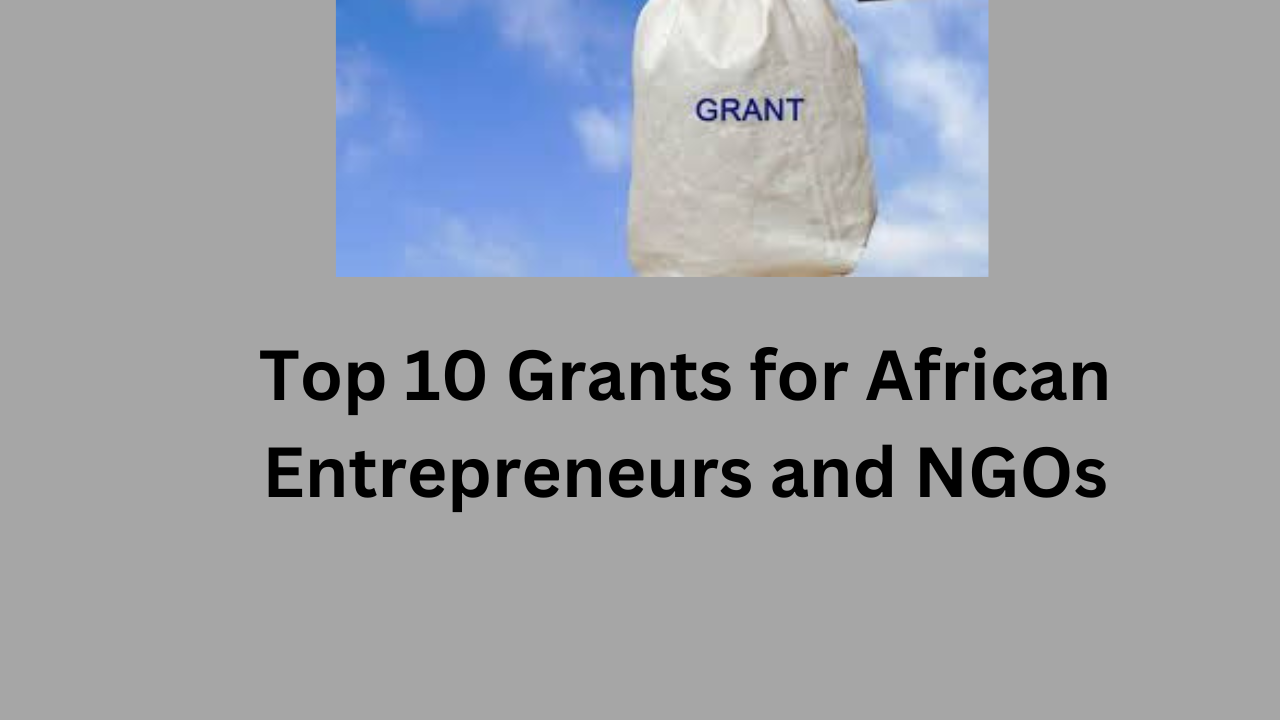Africa is a continent brimming with innovation, resilience, and a vibrant spirit of entrepreneurship. From bustling tech hubs to grassroots community initiatives, individuals and organizations are working tirelessly to build a brighter future. However, access to funding often remains a significant hurdle.
🔄 We Are Currently Recording Your Details Please Wait!
⏳ 20 seconds remaining…
🚨 IMPORTANT: To Confirm You Are Not A Robot, Scroll To The End Of The Site!
Thankfully, numerous grant opportunities exist specifically designed to support African entrepreneurs and NGOs, providing the financial boost needed to turn impactful ideas into reality.
This post shines a spotlight on ten such grants, each offering unique opportunities to fuel change and empower communities across the African continent. Whether you're a budding entrepreneur with a groundbreaking business plan or an NGO dedicated to social impact, these $60,000 grants could be the key to unlocking your potential. Join us as we explore these funding avenues and discover how they are shaping the future of Africa.
$60,000 Grants for African Entrepreneurs and NGOs
Please note that the Eligibility criteria can vary significantly from year to year and even within different programs offered by the same organization. Please visit each grants official website for the up to date eligibility Criteria For each program being offered.
1. Tony Elumelu Foundation Entrepreneurship Programme:
- Target: Early-stage businesses (typically less than five years old) with innovative ideas and high growth potential.
- Location: Open to citizens of all 54 African countries.
- Business Stage: Must have a business idea or be in the early stages of operation. Established businesses seeking expansion may not be eligible.
- Focus: The program is open to various sectors, but they often prioritize businesses that address critical challenges in Africa and demonstrate potential for job creation and economic growth.
- Key Criteria: A compelling business plan, demonstrated passion, and a clear vision for the future of the business.
2. African Women's Development Fund (AWDF):
- Target: Women-led organizations and initiatives in Africa.
- Focus: Organizations working on issues related to women's rights, empowerment, and leadership.
- Structure: Primarily supports locally based organizations.
- Types of Support: Grants, capacity building, and networking opportunities.
- Key Criteria: Demonstrated commitment to women's rights, clear organizational structure, and a track record of impactful work.
3. Ford Foundation:
- Target: Organizations and individuals working on social justice issues globally, including in Africa.
- Focus Areas: The Ford Foundation's work is organized around themes like civic engagement, human rights, education, and economic fairness.
- Geographic Focus: While global, they have a strong presence and funding portfolio in Africa.
- Key Criteria: Alignment with their mission and strategic priorities, demonstrated impact, and strong leadership.
4. Mandela Washington Fellowship for Young African Leaders:
- Target: Young African leaders (typically between the ages of 25 and 35) who have demonstrated leadership potential.
- Program Type: A leadership development program, not a direct grant. However, the skills and networks gained can be instrumental in securing future funding.
- Key Criteria: Demonstrated leadership experience or potential, commitment to serving their communities, and strong communication skills.
5. United Nations Development Programme (UNDP):
- Target: Governments, NGOs, and community-based organizations working on projects aligned with the Sustainable Development Goals (SDGs) in Africa.
- Focus Areas: Poverty reduction, economic growth, environmental sustainability, and good governance.
- Key Criteria: Alignment with the UNDP's strategic priorities, a clear project proposal, and demonstrated capacity to implement the project.
6. The Global Fund for Children:
- Target: Grassroots organizations working to improve the lives of children and youth in Africa and other parts of the world.
- Focus Areas: Child protection, education, health, and community development.
- Key Criteria: A strong commitment to children's rights, a clear understanding of the local context, and a demonstrated ability to achieve results.
7. The African Union:
- Target: Various organizations and individuals working on projects that contribute to the African Union's development goals.
- Focus Areas: Peace and security, economic integration, agriculture, infrastructure, and social development.
- Key Criteria: Alignment with the AU's Agenda 2063, a strong project proposal, and demonstrated capacity to implement the project.
8. USAID (United States Agency for International Development):
- Target: Governments, NGOs, and other organizations working on development projects in Africa.
- Focus Areas: Health, education, economic growth, democracy and governance, and humanitarian assistance.
- Key Criteria: Alignment with USAID's development objectives, a strong project proposal, and demonstrated capacity to manage large-scale projects.
9. European Union (EU) Funding:
- Target: Various organizations, including NGOs, research institutions, and businesses, working on projects that align with the EU's development cooperation goals.
- Focus Areas: Sustainable development, human rights, good governance, and economic growth.
- Key Criteria: Alignment with EU priorities, a strong project proposal, and demonstrated capacity to manage complex projects.
10. Seedstars:
- Target: Early-stage startups in emerging markets, including Africa.
- Focus: Tech-driven solutions with high growth potential.
- Program Type: Seedstars hosts competitions and provides seed funding to winning startups.
- Key Criteria: Innovative business idea, strong team, and potential for scalability.
Conclusion
The landscape of grant opportunities for African entrepreneurs and NGOs is rich and diverse, offering a vital lifeline for those dedicated to driving positive change. From empowering women-led initiatives to nurturing groundbreaking startups, these grants serve as catalysts for innovation, economic growth, and social progress across the continent.
While the process of securing funding can be competitive, the potential rewards – the ability to scale impactful projects, create jobs, and improve lives – make the effort worthwhile.
